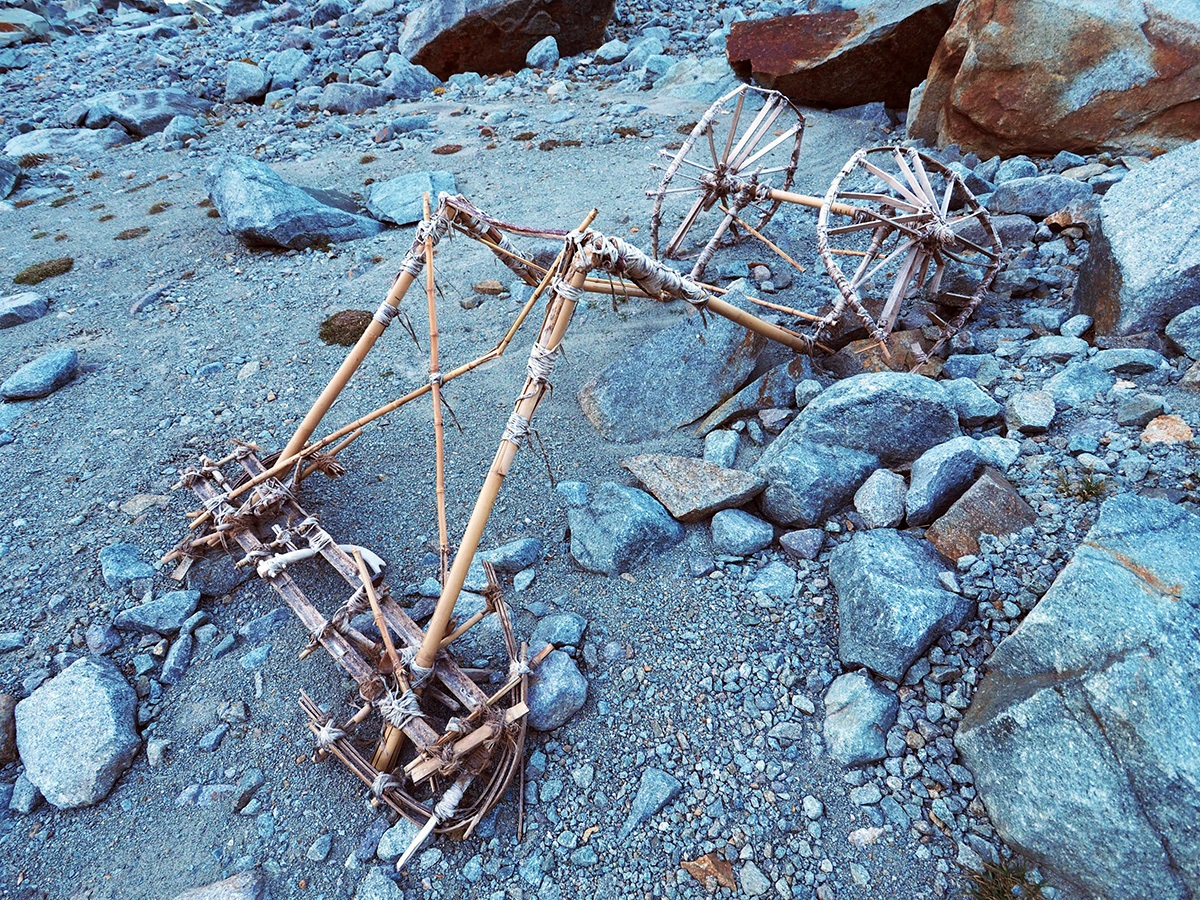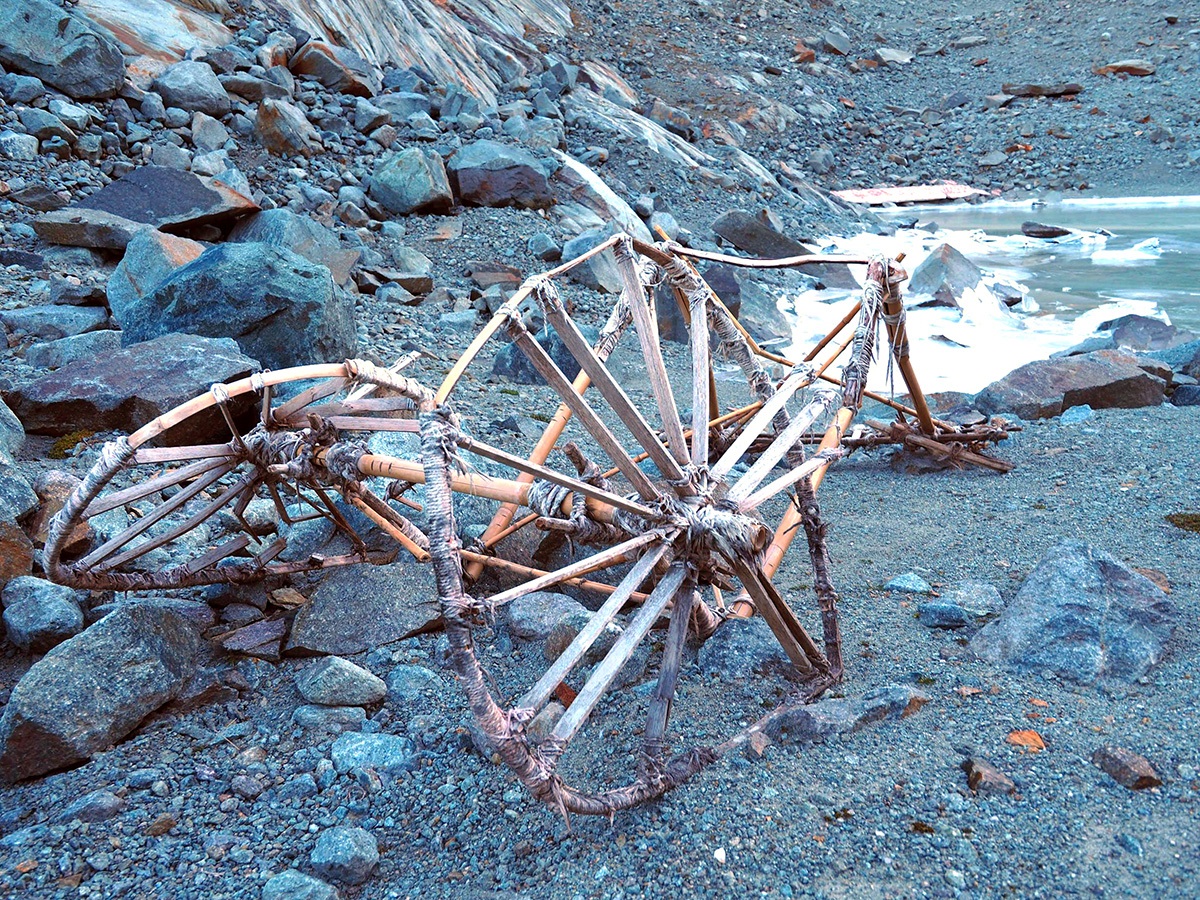According to a statement published on social media by the Canton of Graubünden, a mysterious bamboo waggon has recently been discovered at a section of melted glacier in the Alps.
The wagon was found by Sergio Veri who was hiking in the area of the Splügen Pass, an Alpine mountain pass that connects the Swiss Hinterrhein valley and Splügen in the canton of Graubünden with the Valle San Giacomo and Chiavenna in the Italian province of Sondrio.
Documentary evidence suggests that the Splügen Pass has been used since antiquity, where it was possibly known as the Cunus Aureus, as shown on the Tabula Peutingeriana, a map prepared by Agrippa during the reign of the emperor Augustus (27 BC to AD 14).

Sergio Veri encountered the waggon in the path of a melted glacier, which upon preliminary examination appears equipped with two wheels that are made of bamboo rods tied with laces.
Bamboo is a member of the grass family, Poaceae, and is technically classified as a grass. Bamboo is not a native plant in Europe; it was first introduced to the continent in the late 1700s or early 1800s, suggesting that the waggon likely dates from around the 20th century.
The waggon has been reported to the archaeological service for the Canton of Graubünden who are yet to examine in person.
This discovery builds on a recent find reported by the Secrets of the Ice project. In the summer of 2023, archaeologists uncovered what appears to be a 20th-century sled that had emerged from the melting Cavagnöö glacier in Switzerland.
Header Image Credit : Sergio Veri
Sources : Canton of Graubünden





